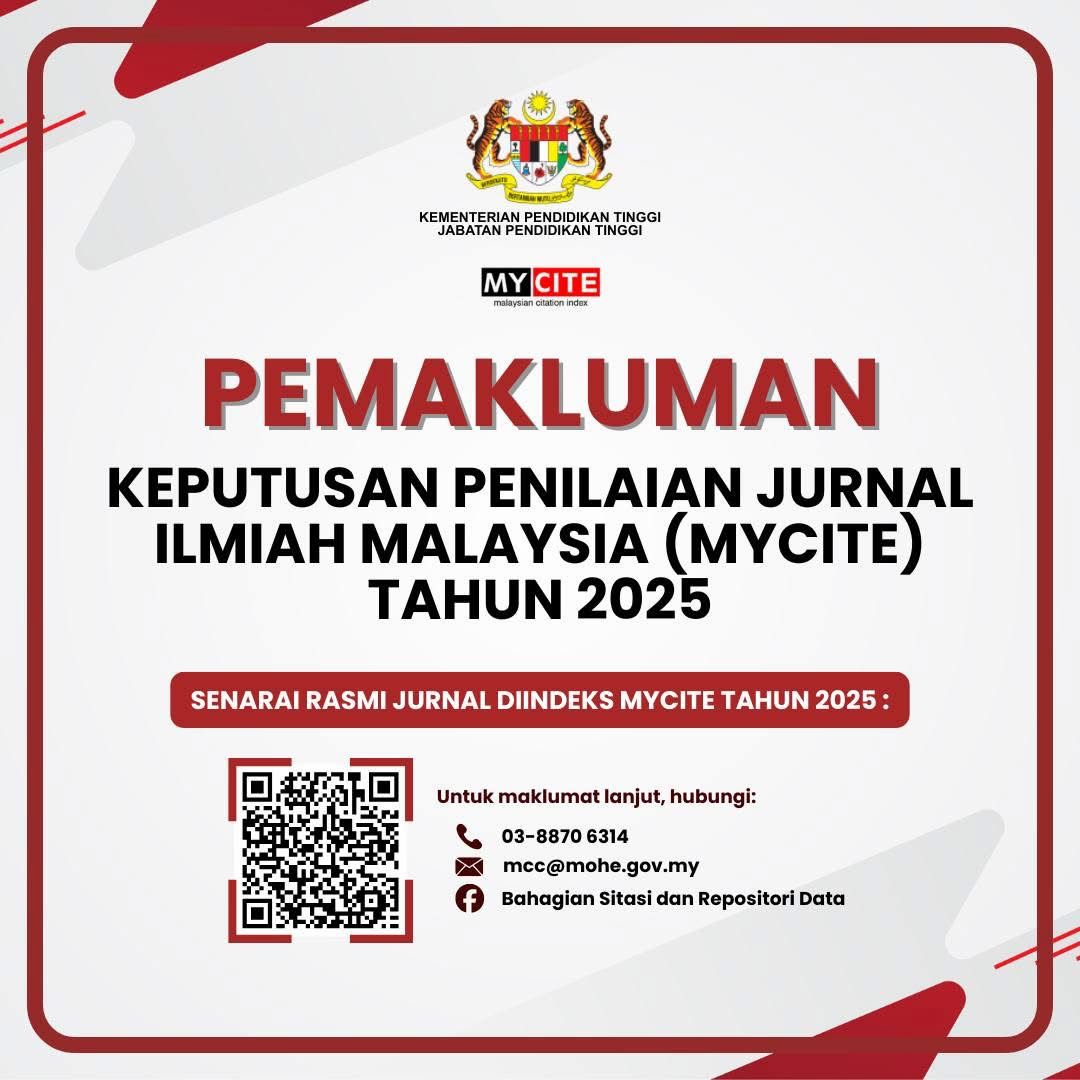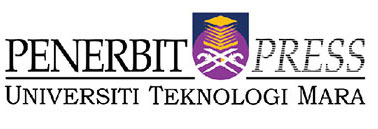The Phenomena of Language Politeness in the novel entitled Lentera Mustika
DOI:
https://doi.org/10.24191/idealogy.v3i2.62Keywords:
Leech’s Politeness Principle,, Language PolitenessAbstract
Language politeness can be defined as the ways in which language is employed in conversation with good manners and etiquette. This aspect should not only be emphasized in society, but also in novel writing. The purpose of this article is to identify and explain the politeness maxims used by the author in the novel Lentera Mustika. This language politeness seems to be very significant as novels nowadays have been the most popular genre of literature to read among Malaysians. Hence, this study will use the novel Lentera Mustika by Nisah Haron (2009) published by PTS Litera as research data. The study will also adapt Leech’s Politeness Principle (1983) for data analysis. Findings show that this novel has fulfilled the maxims of politeness proposed by Leech and portrayed that the use of good and polite language in writing can indirectly educate readers to adapt politeness in their communication.
Keywords: Leech’s Politeness Principle, Language Politeness
References
Awang Sariyan. (2007). Santun berbahasa.Kuala Lumpur: Dewan Bahasa dan Pustaka.
Bernama. (2013). KPKK sedia bantu penggiat buku pasar buku berkualiti ke luar negara. Diakses daripada Bernama: Bhd.
Dina Rofi'atun Ni'mah (2009). Maxims of Politeness Principle Found in "The Prince and Me" Movie. Diakses daripada http://lib.uin- malang.ac.id/thesis/fullchapter/05320135-dina-rofiatun-ni-mah.ps
Faridah Nazir, Ratna Laila Shahidin, & Faiziah Shamsudin.(2014). Kesantunan rakyat Malaysia. Selangor: Penerbitan Multimedia Sdn. Bhd.
Fitriyana, Y. (2007). Politeness strategies in John Grisham's novel "The Client". Tesis Sarjana Muda. Fakultas Humaniora Dan Budaya
Grabmeier, J. (2012). "Losing yourself" in a fictional character can affect your real life. Diakses daripada Research and Innovation Communications: http://researchnews.osu.edu/ archive/exptaking.htm
http://web6.bernama.com/bernama/v3/bm/news_lite.php?id=925352
Lancaster University. (2013). Professor Geoffrey Leech. Diakses daripada Department of Linguistic and English Language: http://www.ling.lancs.ac.uk/profiles/geoffrey- leech
Leech, G. (2005). Politeness: Is there an East-Western divide? Journal of Foreign Language, 1-30.
Murliati, Y. (2013). Politeness strategies used by George Milton in John Steinbeck’s of Mice and Men. Tesis Sarjana Muda. Fakultas Adab dan Ilmu Budaya
Nik Safiah Karim, Farid M. Onn, Hashim Musa & Abdul Hamid Mahmood. (2012).Tatabahasa Dewan (edisi 3.). Kuala Lumpur: Dewan Bahasa dan Pustaka.
Nisah Haron. (2009). Lentera Mustika. Kuala Lumpur: PTS Litera Utama Sdn.
Noor Hatini Zolkifli, & Siti Saniah Abu Bakar. (2011). Unsur eufemisme dalam novel Papa dan Azfa Hanani. Jurnal Bahasa, 11 (1), 83-108.
Norhana Bakhary. (2014). Strategi kesantunan berbahasa masyarakat Adat Perpatih dalam kata perbilangan.Jurnal Bahasa. 14(2), 239-271.
Noriati A. Rashid. (2005). Nilai kesantunan dalam konteks sosiobudaya masyarakat Melayu.Jurnal Pengajian Melayu. 15. 232-253
Novita Rihi Amalia (2010). Analisis gaya bahasa dan nilai-nilai pendidikan novel Sang Pemimpi karya Andrea Hirata. Diakses daripada https://core.ac.uk/download/files/478/12348 731. pdf
Sara Beden, & Indirawati Zahid. (2014a). Analisis kesopanan berbahasa dalam komponen sastera (Komsas): Melunas Rindu. Jurnal Isu dalam Pendidikan, 38(2), 235-246.
Sara Beden, & Indirawati Zahid. (2014b). Analisis Kesopanan Bahasa Leech & Grice: Manifestasi Struktur dan Pola Kesopanan Bahasa dalam Peristiwa Melunas Rindu. Jurnal JATI (Journal of Southeast Asean Studies), 19, 151-168.
Sara Beden, & Indirawati Zahid. (2015). Analisis kesopanan bahasa dalam novel Melunas Rindu: Aplikasi Maksim Leech (1983) & Grice (1975) dan kaitannya dengan sosiobudaya Melayu. Jurnal Bahasa, 15(1), 143-172.
Searle, J. R. (1976). A classification of illocutionary acts. Language in society, 5 (1), 1-23.
Zaitul Azma Zainon Hamzah. (2012). Kesantunan dan strategi berbahasa dalam konteks pendidikan. Dalam Marlyna Maros, Mohammad Fadzeli Jaafar, & Maslida Yusof, Prinsip dan aplikasi kesantunan berbahasa (p. 63-81). Kuala Lumpur: Dewan Bahasa dan Pustaka.
Downloads
Published
Issue
Section
License
UiTM Press (the Publisher) has agreed to publish the undersigned author’s paper in Idealogy Journal. The agreement is contingent upon the fulfilment of a number of requirements listed below.
1. The undersigned author warrants that the paper entitled below is original, that it is not in any way libellous or unlawful in Malaysia, that it does not infringe any copyright or other proprietary right. The undersigned hereby represents and warrants that he/she is the author of the paper, except for material that is clearly identified as to its original source, with permission notices from the copyright owners where required. The undersigned represents that he/she has the power and authority to sign and execute this agreement.
2. The undersigned author warrants that the paper entitled below has not been published elsewhere, and also it will not be submitted anywhere else for publication prior to acceptance/rejection by this Journal.
3. By submitting the paper entitled below, the undersigned author agrees to transfer the rights to publish and distribute the paper in an international e-journal (entitled above) to Publisher.
4. The undersigned author agrees to make a reasonable effort to conform to Publisher's submission guidelines and to liaise with the editor to ensure that the requirements of these guidelines are met to a reasonable degree.
5. The corresponding author signs for and accepts responsibility for releasing this material on behalf of any and all coauthors. This agreement is to be signed by at least one of the authors who has obtained the assent of the co-author(s) where applicable. After submission of this agreement signed by the corresponding author, changes of authorship or in the order of the authors listed will not be accepted.




